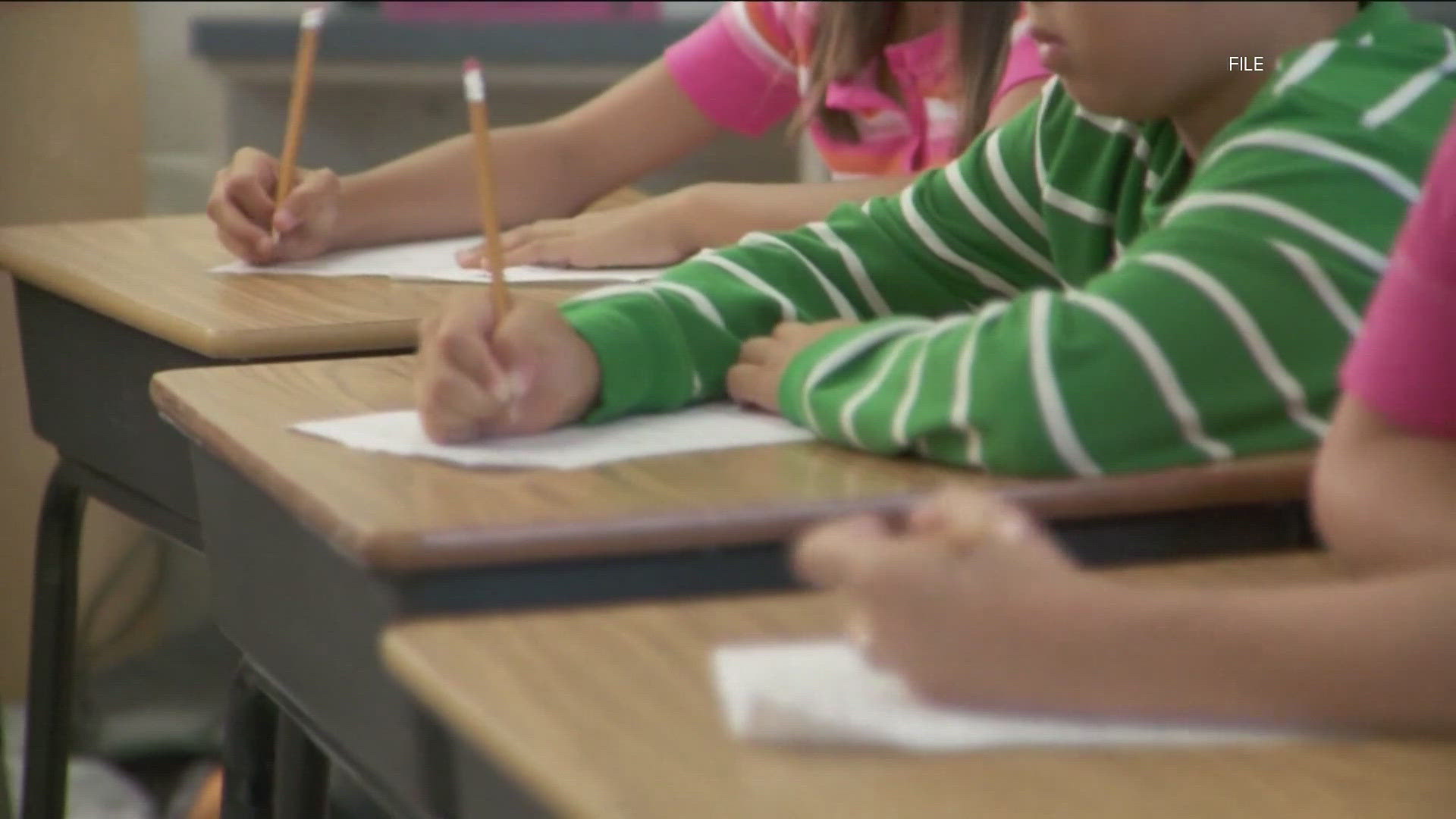ATLANTA — Students at some of the state's worst-performing schools will soon be in line for the Georgia Promise Scholarship. The scholarship offers $6,500 for parents of students who qualify for private school tuition or homeschooling resources.
Kyle Wingfield is president and CEO of the Georgia Public Policy Foundation, a nonpartisan nonprofit that analyzes laws like the one lawmakers passed this year, which paved the way for the Georgia Promise Scholarship.
"It can be life-changing for these students," Wingfield said. "Any parent knows their child is unlike any other child. Different children need different things educationally. Expecting any one public school to provide everything every child needs is maybe a little unrealistic. This allows that family to make the choice that will be best for their child."
The Governor's Office of Student Achievement released a list this week of schools ranking in the bottom 25% of performance across Georgia. The rankings are based on student scores on the college and career readiness performance index. DeKalb County Public Schools had the highest number of schools on the list, followed by the Richmond County School System and Atlanta Public Schools. Metro Atlanta schools accounted for about a quarter of the approximately 500 schools on the list.
Lisa Morgan, the president of the Georgia Association of Educators, said the scholarship is a way to defund already struggling public schools with a history of scarce resources. She said many of the students at the eligible schools are predominantly minorities or come from low-income backgrounds.
"We are trying to find a quick fix to some systemic problems," Morgan said. "It is not a promise. It's not a scholarship. It's a voucher taking our public funds that should be solely for our students in public schools and diverting them to private schools."
While some may label Georgia Promise "school choice," Morgan argued that private schools can choose which students they admit.
“It is giving private schools the ability to take our public funds, and we know that in other states that have tried these schemes, the private schools simply increase their tuition," Morgan said. "The program specifically says that private schools do not have to accept all students. They can continue to discriminate against the students private schools have historically discriminated against. This is going to be another hit to educators who are, yes, burned out and facing a teacher shortage."
Morgan said the state should address the challenges underperforming schools face rather than punish them for students' academic success. She said the money set aside for the Georgia Promise Scholarship should be used to invest in mental health resources, counselors and other things students need to succeed.
Meanwhile, Wingfield said the likelihood of public schools losing students and subsequent funding could lead to better student performance because public school districts would feel the need to address the issues at struggling schools.
"In spite of having those students leave and the change in funding that comes with that, public schools do respond, they do compete, and that's kind of the rising tide for all students," Wingfield said. “There will probably be some bumps along the way. We’ve seen that in other states. Any time you stand up a whole new effort like this, you’re not expecting it to go 100% smoothly.”
The Georgia Promise Scholarship application portal is expected to open early in 2025. To qualify, a family must make less than four times the federal poverty level, which equates to less than $125,000 for a family of four. Funding would become available after July 1, 2025.

